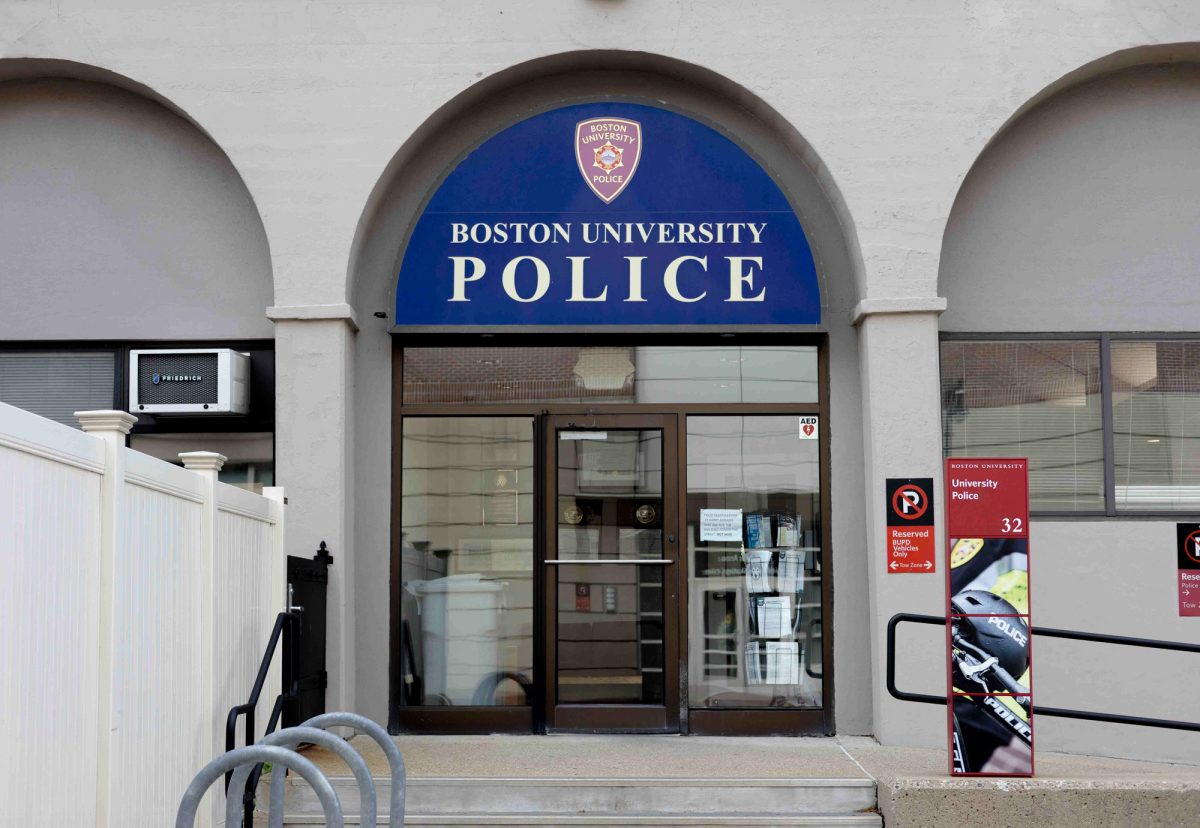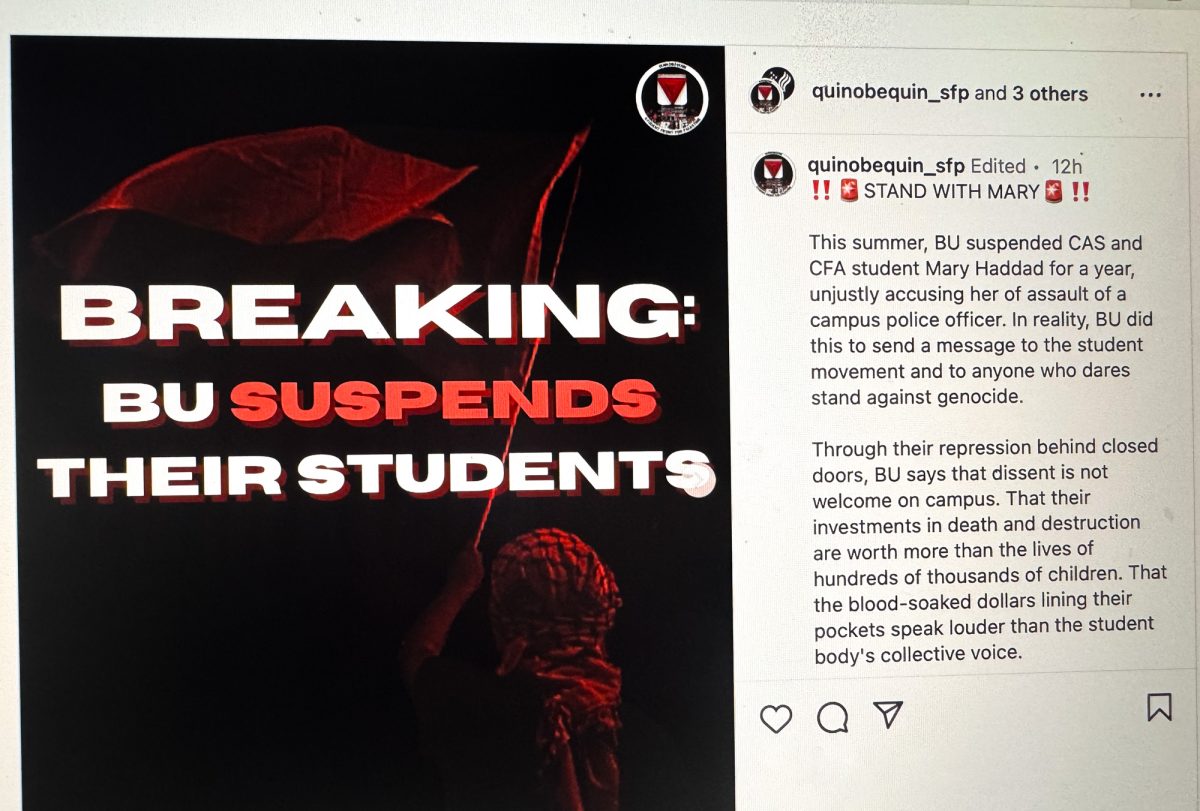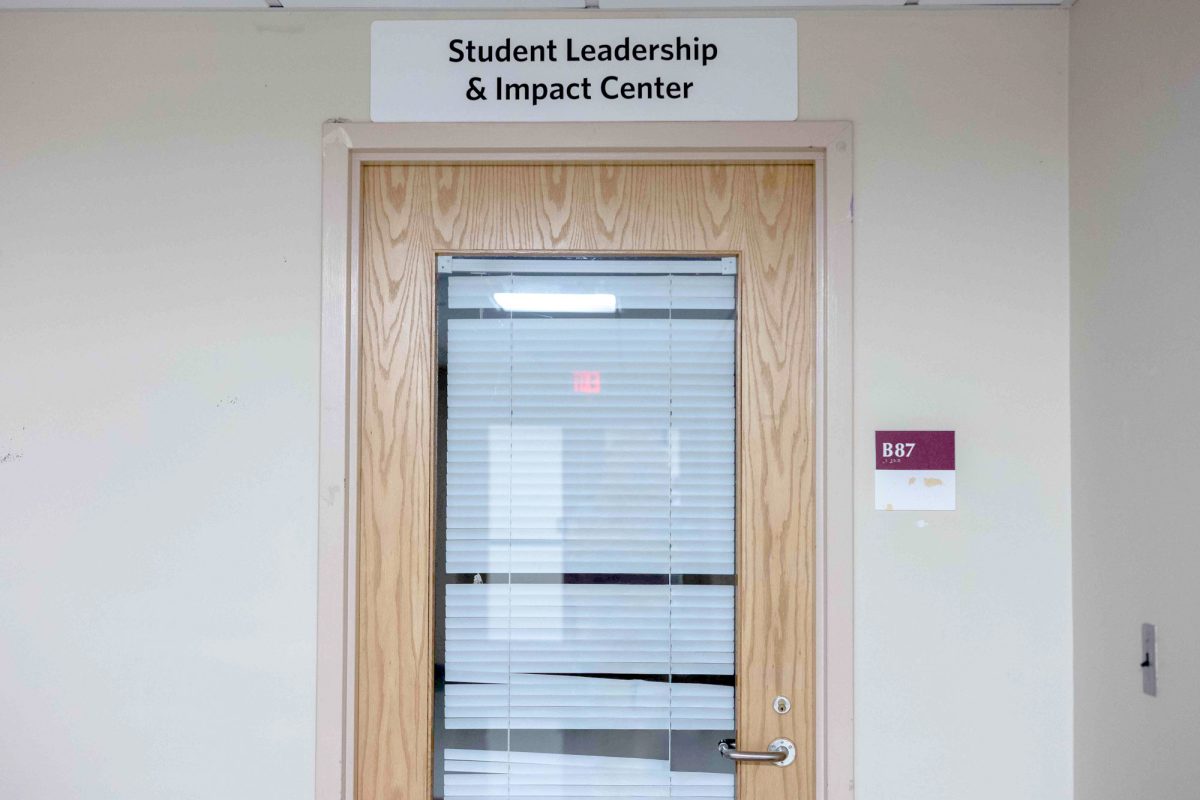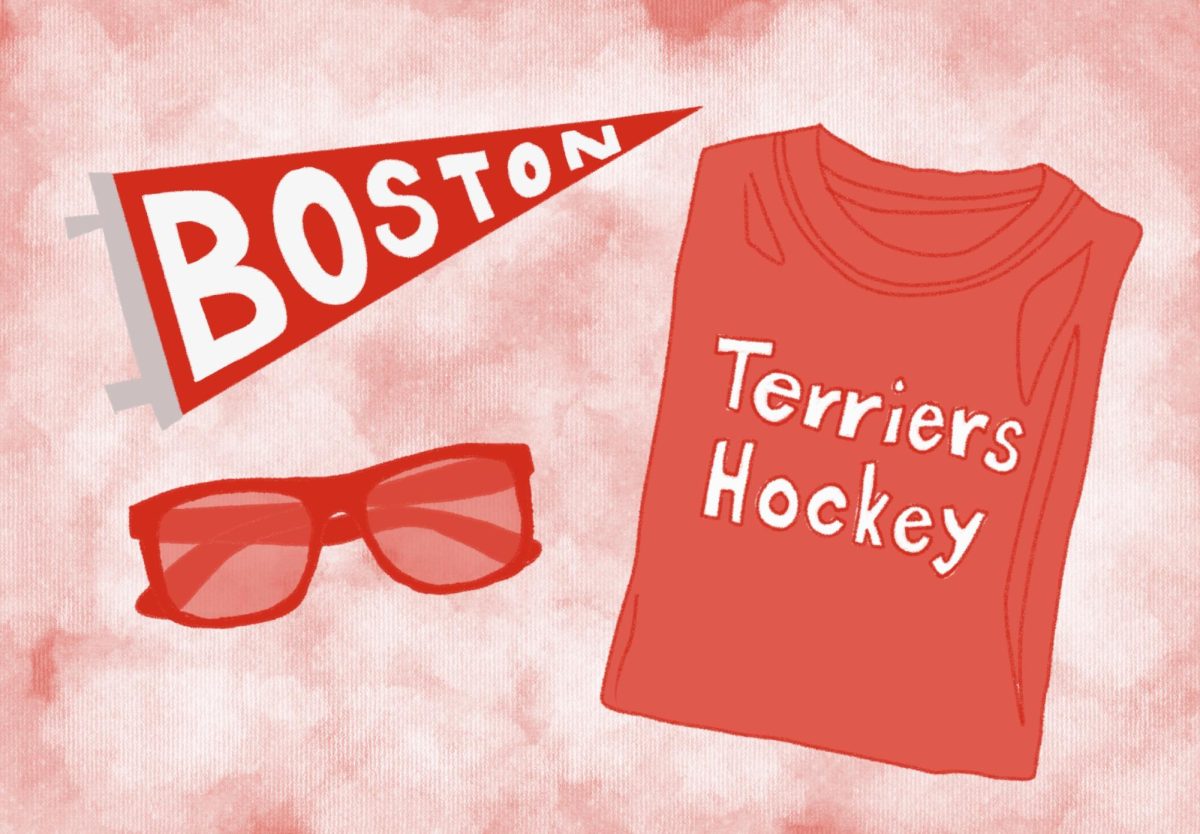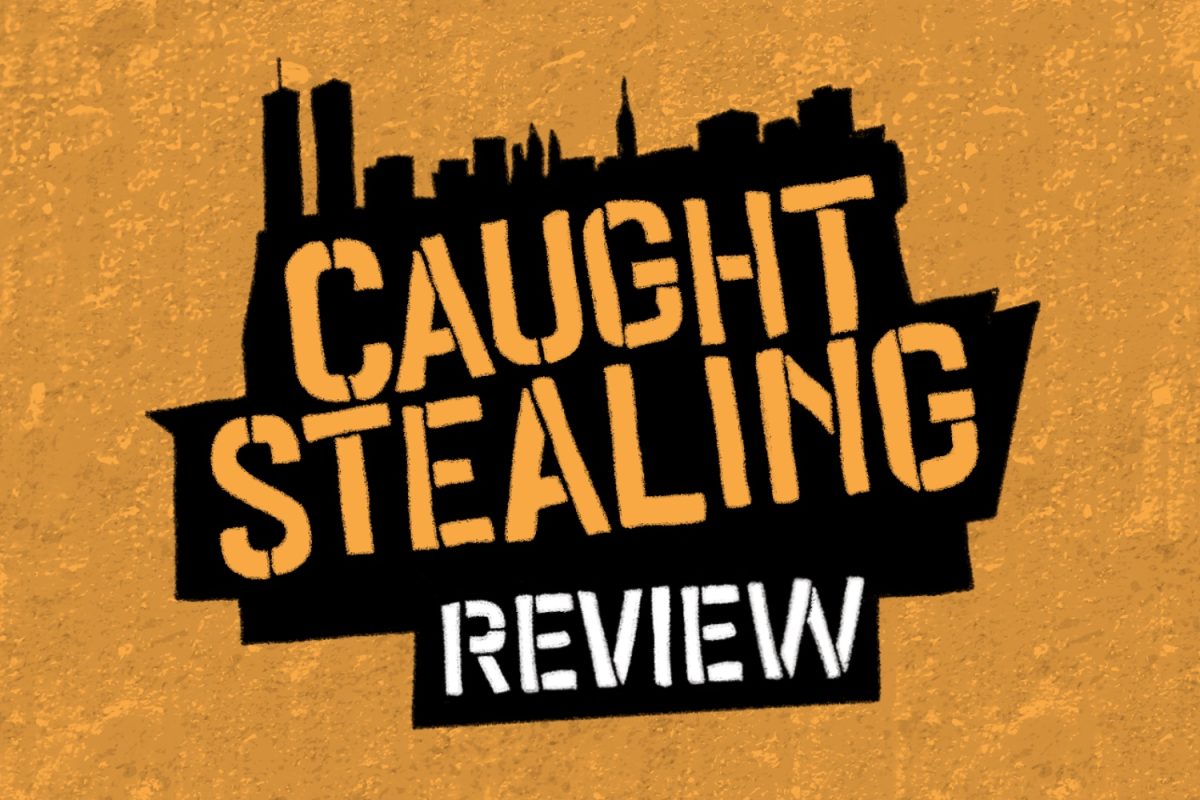When College of Arts and Sciences senior Cara Franson inspects a pair of Tuareg hoop earrings, she isn’t wondering if they will compliment her outfit for Saturday night.
Instead, Franson is looking for symbolic engravings and intentional patterns that will help her understand the function of jewelry to the Tuareg — a Western African people that have been creating, melting down and re-sculpting the silver body adornments for hundreds of years.
“Tuareg jewelry is an interesting medium to study because you can see influences of Christian art, Islamic art and other African cultures in it,” said Franson, who majors in art history and dedicates 10 to 15 hours a week to intensive research on the subject. “You can see a crossing of the world in this jewelry.”
Typically, research might be associated with an image of PhD students slaving over test tubes in isolated labs. But Franson and a handful of Boston University students are dispelling that stereotype by investigating their own focused interests across a broad spectrum of topics — all while working toward undergraduate degrees.
Through BU’s Undergraduate Research Opportunities Program, undergrads can partake in a real-life research experience, including writing a detailed proposal, earning grant money, collecting data and organizing results. Some even publish their findings in journals or symposiums.
Whatever the topic, UROPers admit research is actually fun — and an ideal way to gain experience and a leg up in their future endeavors.
ANALYZING ANCIENT JEWELS
Franson’s curiosity with African art — specifically Tuareg jewelry — was piqued during the spring of 2005 when she studied abroad in Niamey, Niger. While working in a museum and batiking (fabric dying), she became friends with several Tuareg.
Franson explained that historically, the Tuareg women wore jewelry — crafted by the men — to carry all of their wealth on their bodies. The molded metal also signified the age and status of the wearer. Today, the American and European demand for fashionable, exotic jewelry from various pockets of the globe drives the market for Tuareg art.
“A lot of what they make now is catered to tourists,” said Franson, “so many of the ancient styles are totally different and have been lost. In the 1970s and 80s, a drought in the Sahara forced them to sell their stuff to museums, or melt it down to make newer styles.”
If Franson seems to know her stuff, it’s because she genuinely enjoys sifting through library archives and getting behind-the-scenes museum tours that are off-limits to the general public.
“I find it fun because I’ve felt more like an investigator or spy,” she said. “I’m looking at this jewelry and old photographs and looking for evidence. This kind of research I really like.”
Before Franson began her research, she composed a four-page proposal delineating her objectives and goals. Her focus is sharp: According to her project description, she will “draw conclusions on the role that the jewelry plays within the culture, consider how jewelry forms have evolved over time, and ask what the different patterns and motifs communicate about the social roles of Tuareg women.”
UROP then named Franson a spring 2006 grant recipient based on the merit of her proposal. She conducts most of her research at the Peabody Museum of Archeology and Ethnology at Harvard, where a Tuareg art collection is currently on display. The Boston Public Library, Smithsonian Institute of African Art and current Tuareg scholars have also proved informative for her studies.
“I’ve definitely had to be creative with my funds,” Franson laughed, explaining that most students receive $2,000 in funding, $1,000 from UROP and another thousand from the department for whom they are conducting research. The money gives them freedom to dedicate time to research that might otherwise be used working at a job. The cost of books and other materials is also factored in.
“Because art history is not normally associated with research, they are underfunded for research grants,” said Franson, adding that she has less money to work with than most recipients.
But funding issues don’t seem to deter Franson, who said the benefits she reaps by participating in undergraduate research are worthwhile and rewarding.
“It gives me an edge, a specialty,” said Franson. “When I go into any future interview, it will be something to talk about that makes me stand apart.”
She also pointed out that participating in research made her realize that she does not want to go into archiving after college. Like an internship, undergraduate research can help students realize what they don’t want to pursue, instead of blindly committing to years of graduate school or a job.
Although she is graduating in May, Franson plans to stay in Boston and continue researching. Eventually she hopes to write about her investigation and publish an article — a golden ending to months of hard work.
“The opportunity to publish is the real benefit,” Franson said. “More people in the humanities should get into this. Research leads to bigger things.”
DEPRESSION AND DATA COLLECTION
Sarah Henry is only a sophomore, but her résumé reads more like that of an experienced graduate student.
A CAS student, Henry is majoring in psychology, minoring and biology, and takeing the necessary courses for the pre-med track. She has worked and volunteered at two hospitals in Boston, which led to her involvement in the Families’ and Children’s Adjustment Study.
“It’s funny, I never knew about UROP until I walked past their office on Bay State and saw the sign,” Henry said, explaining that she started out as a volunteer in the project, handing out flyers in hospitals. “After I got the grant money, my opportunities were extended to do more in-depth research.”
Henry talks affectionately about BU professor of psychology Martha Thompson, her mentor — all UROPers must have one — who she says has become a friend and role model.
“We don’t always sit there and just talk research,” Henry says. “Often we talk about personal things. She’s a mother of two kids, and I see how she balances work and family, and that to me is inspirational.”
Having a mentor is another plus for undergraduate researchers. In large lecture classes where many students never get personal attention from their professors, a mentor can be a helpful advisor — and can write a killer recommendation.
“[Thompson] replaces all of the professors in my sciences classes that I don’t really know,” said Henry. She helps me with the scholarships I’ve applied for and will write my med school recommendation.”
Henry is part of a research team under Thompson that studies how clinically depressed mothers affect the behaviors of their children over a three-year span. The study was already in existence for three years when Henry signed on, and she said it would not be completed until at least 2010.
“I didn’t know a study like this could take so long and require so many people, but data collection is just the half of it,” Henry said.
The longevity and scope of the study doesn’t seem to intimidate her.
“It’s a good relaxer,” she said. “I enjoy going there, and we have a good time. I find I can balance my studying more because it forces time management skills.”
Because she wants to be a child psychiatrist, Henry said she feels the study compliments her education perfectly.
“I’m learning and observing things that other pysch students aren’t exposed to until senior year,” she said. “Plus, this will help me with getting into med school. They look for long-term commitment, and this shows I’m dedicated.”
Henry advises other students to look into UROP, even if they don’t think research would normally be applicable to their concentration of study.
“When I suggest [UROP] to my friends, there is that stigma that, ‘well we’re not studying science,’ and people don’t know that it can be psychology, or anything you want it to be,” she said. “If you took a class outside of your major and really enjoyed it, talk to your professor and see if they are offering anything.”
SPACE-BOUND
BALANCE SKILLS
For many students at BU, declaring a bio-medical engineering major might sound like a death sentence. For College of Engineering junior Andrew Chow, the 27 hours of class time per week did not keep him from adding another project to his plate.
“It’s an opportunity to get paid and research at the same time,” said Chow, who was already volunteering for the project as a sophomore, when he “fell into” UROP.
Like Henry, Chow joined a research team headed by a BU professor, and later applied for grant money using a tweaked version of the professor’s proposal.
Chow and the team are trying to figure out how to improve the balance of astronauts when they return to Earth from the absence of gravity. They propose that training for a trip to space in a room tilted at a 90-degree angle will improve not just strength, but also balance.
“It’s complicated and hard to explain,” he said after trying to break down their research jargon into layman’s terms. “It’s like training for a sport — your conditioning should be geared toward balance and strength, not just lifting weights.”
Chow said his experience in research shows he is dedicated to something besides schoolwork, even if that means tackling a tight schedule.
“It gives me an upper hand in so many ways,” he said. “Getting paid to do research is better than doing an un-paid internship in the same area, and it’s definitely worth looking into for anyone.”





